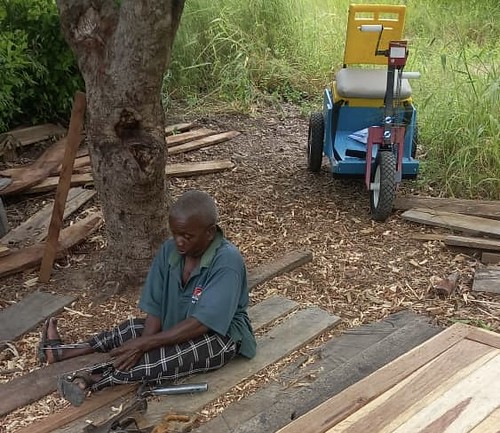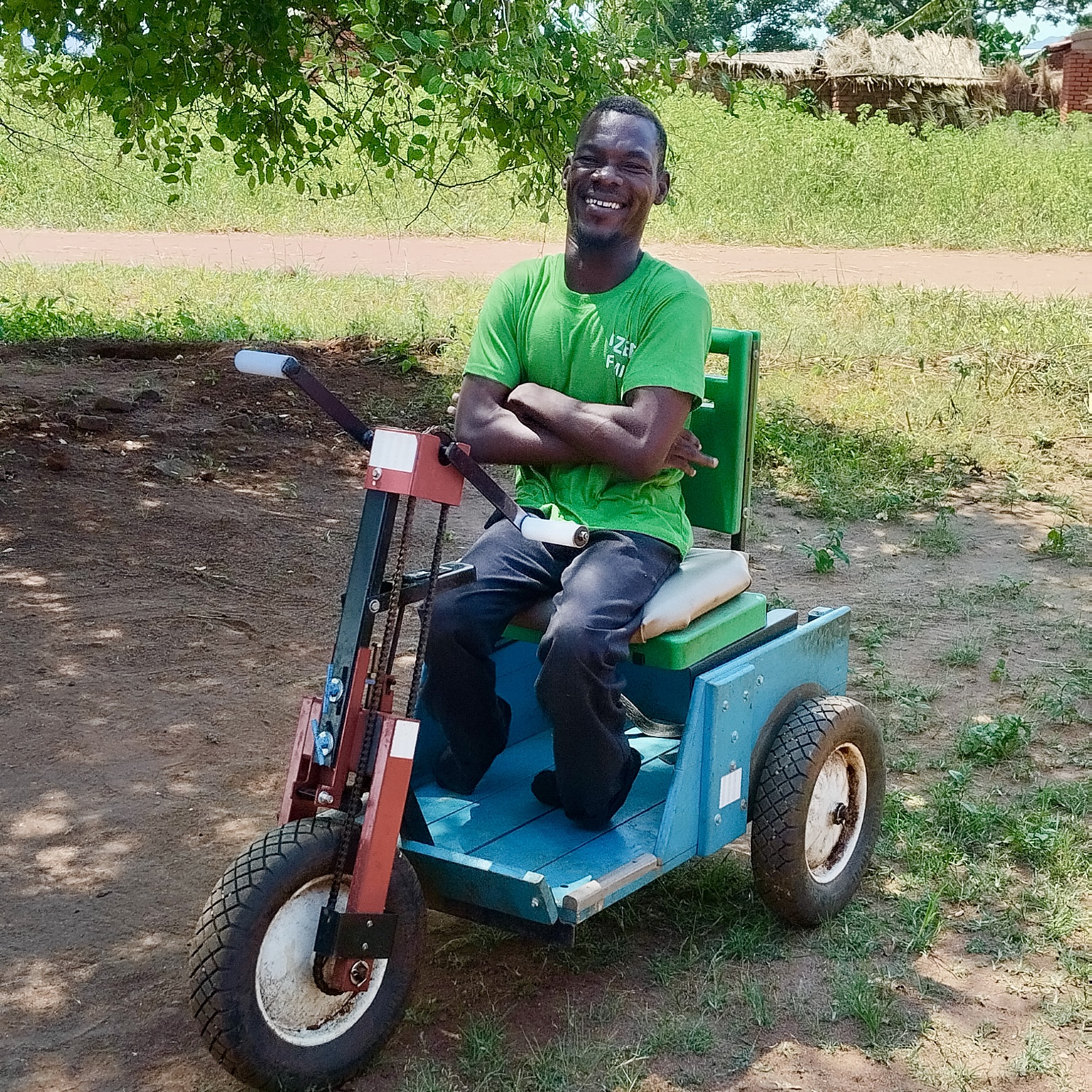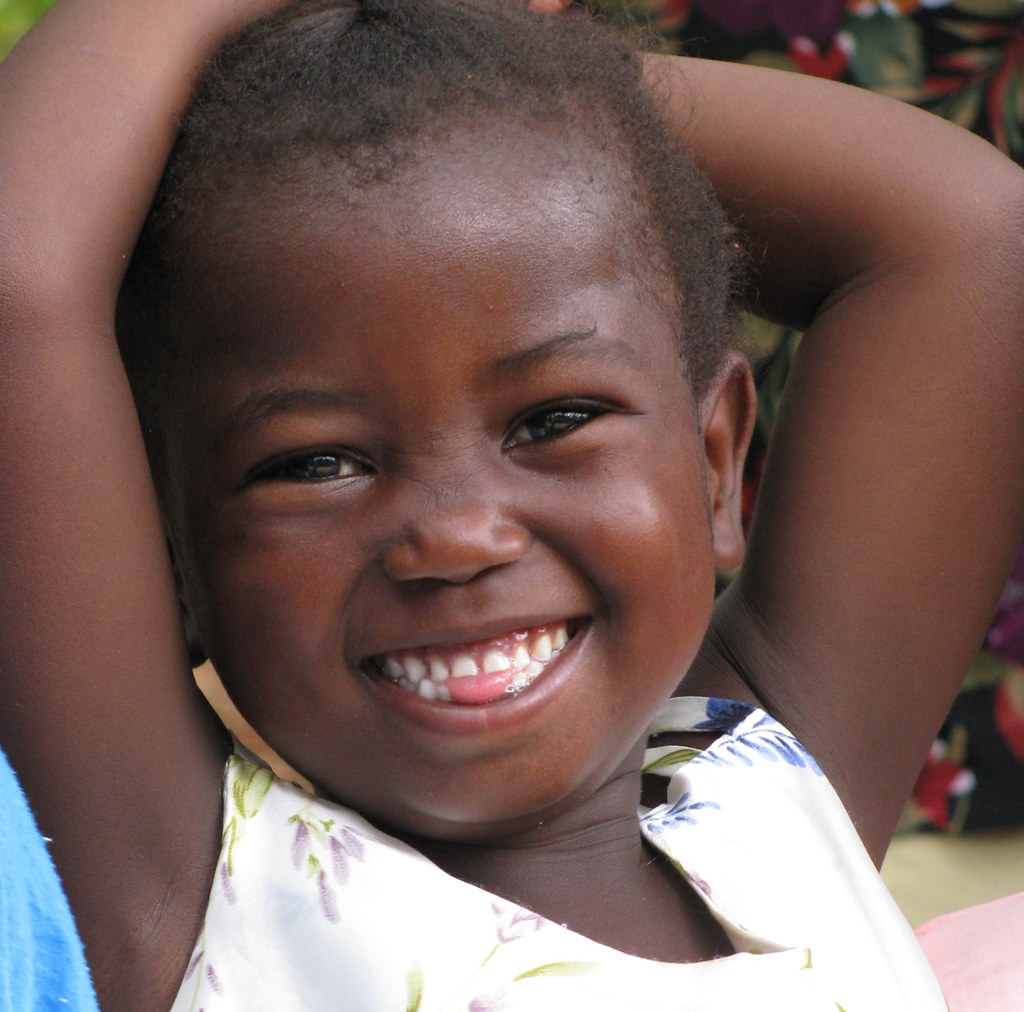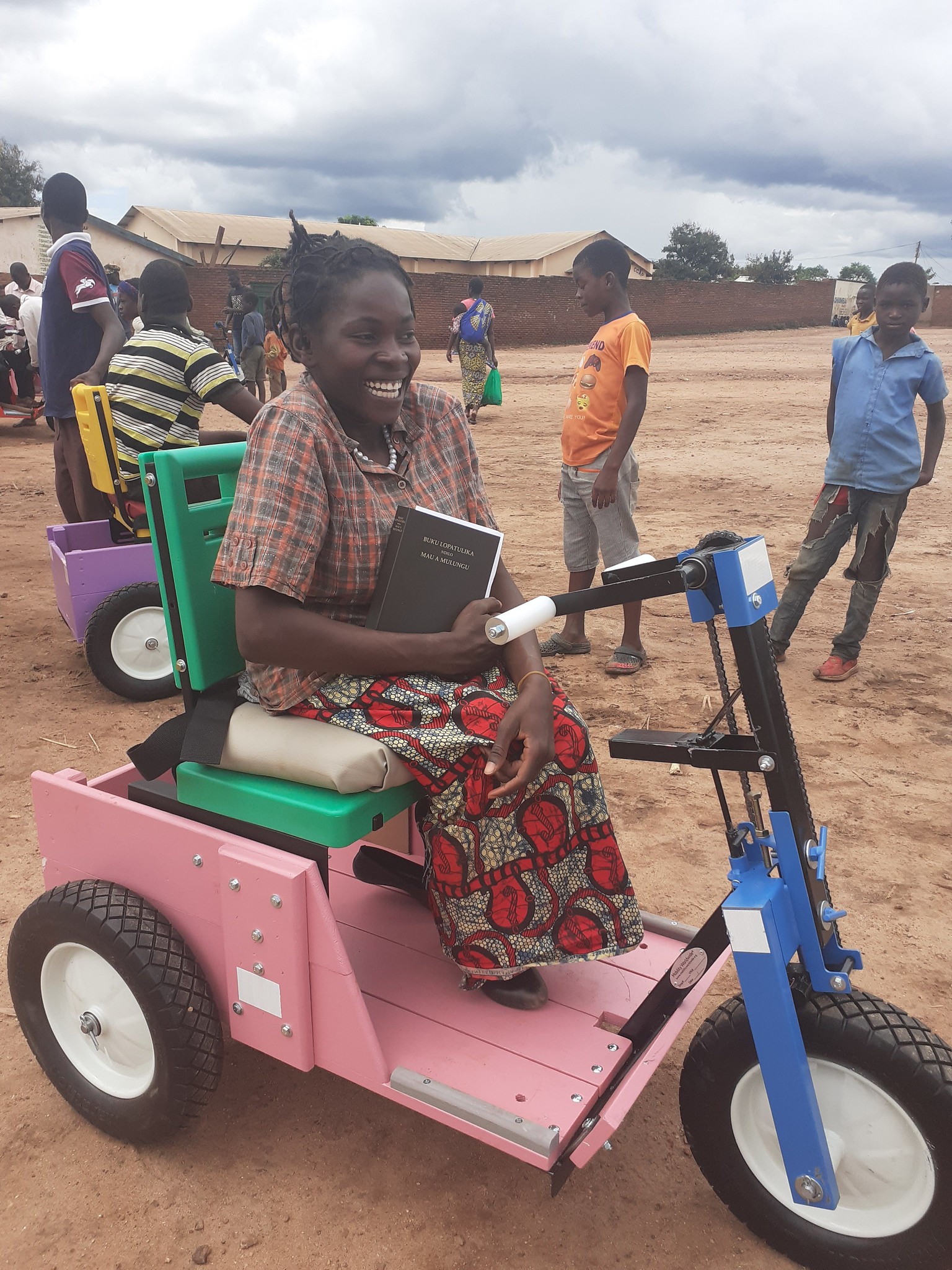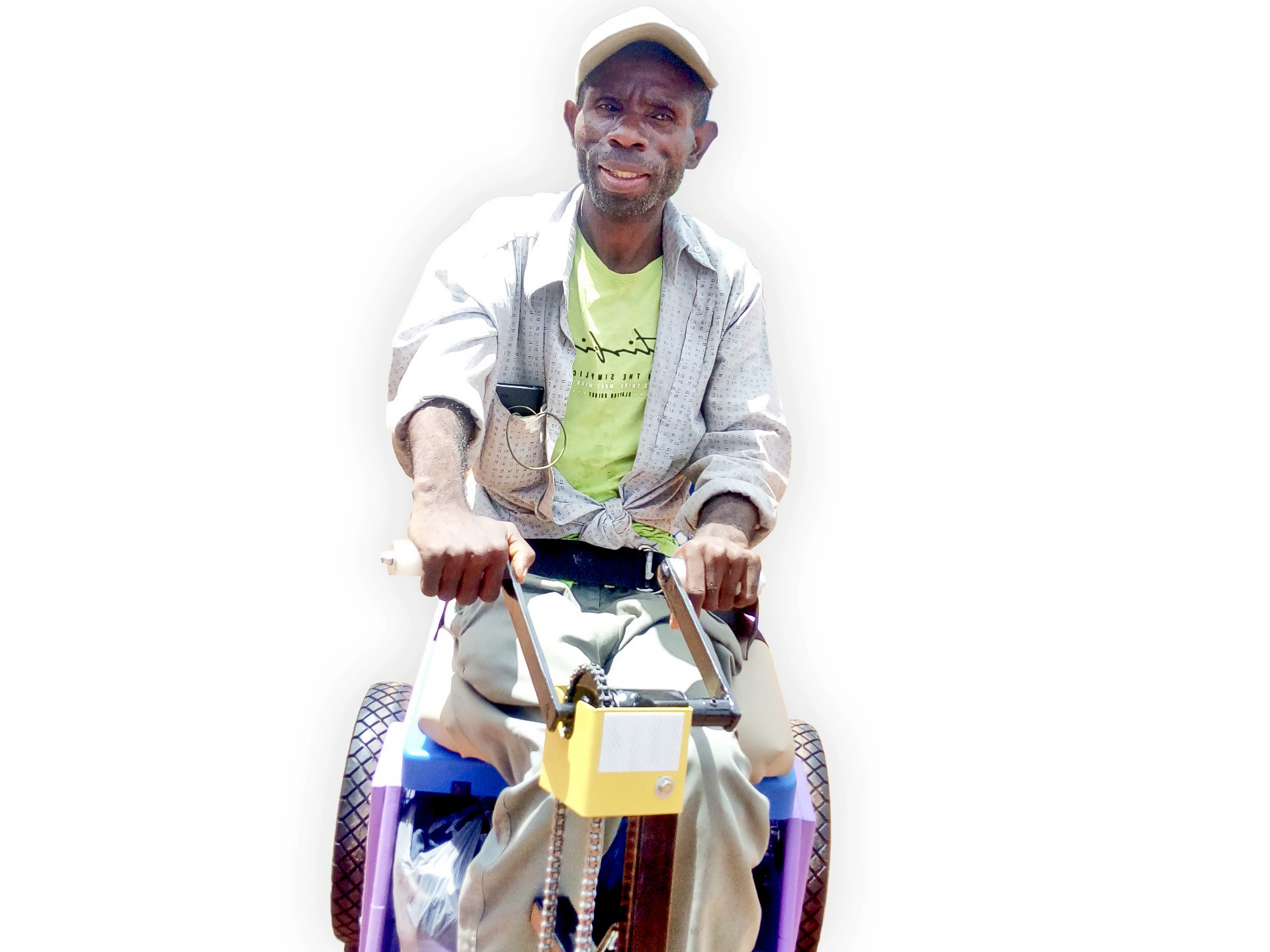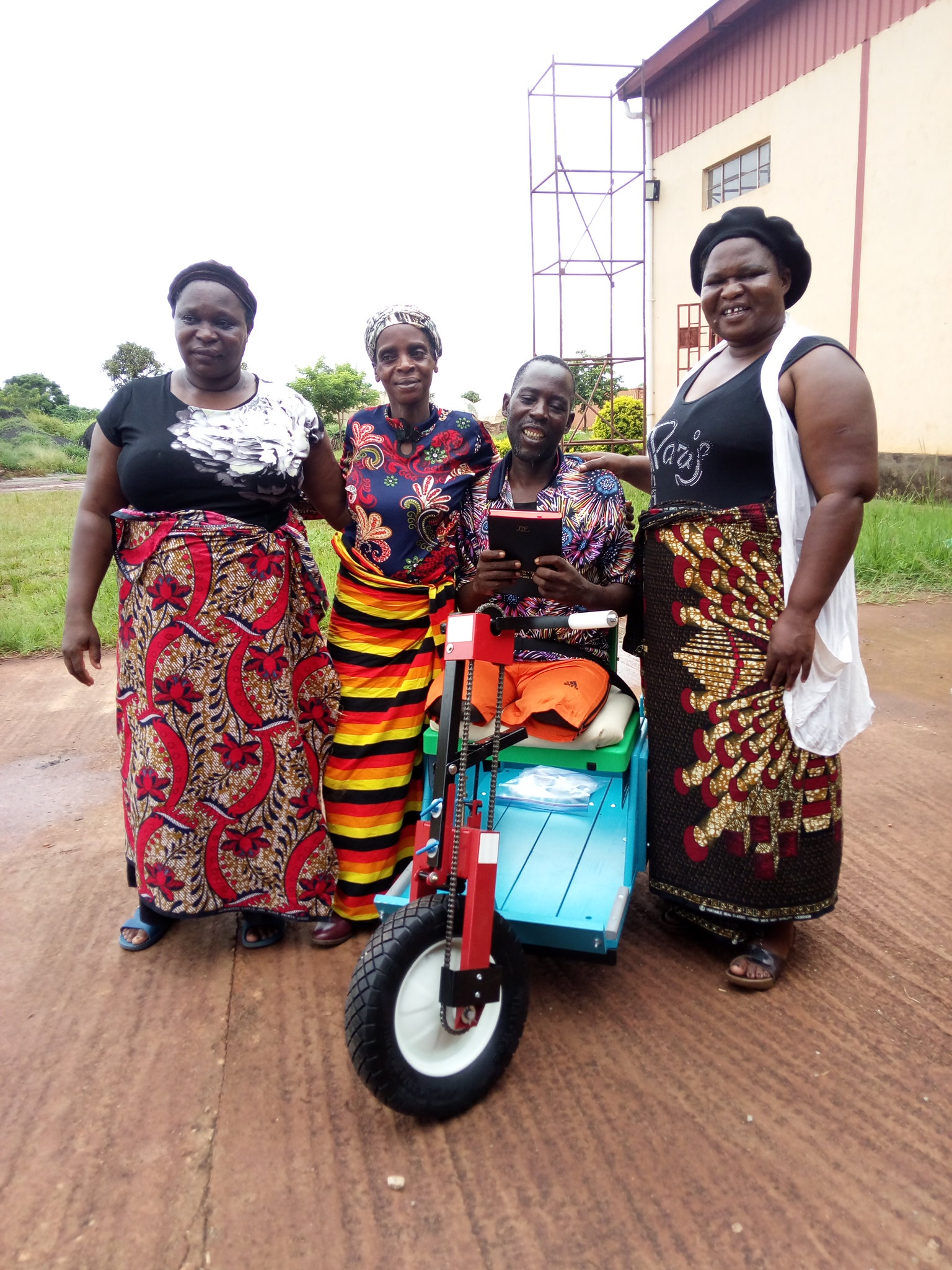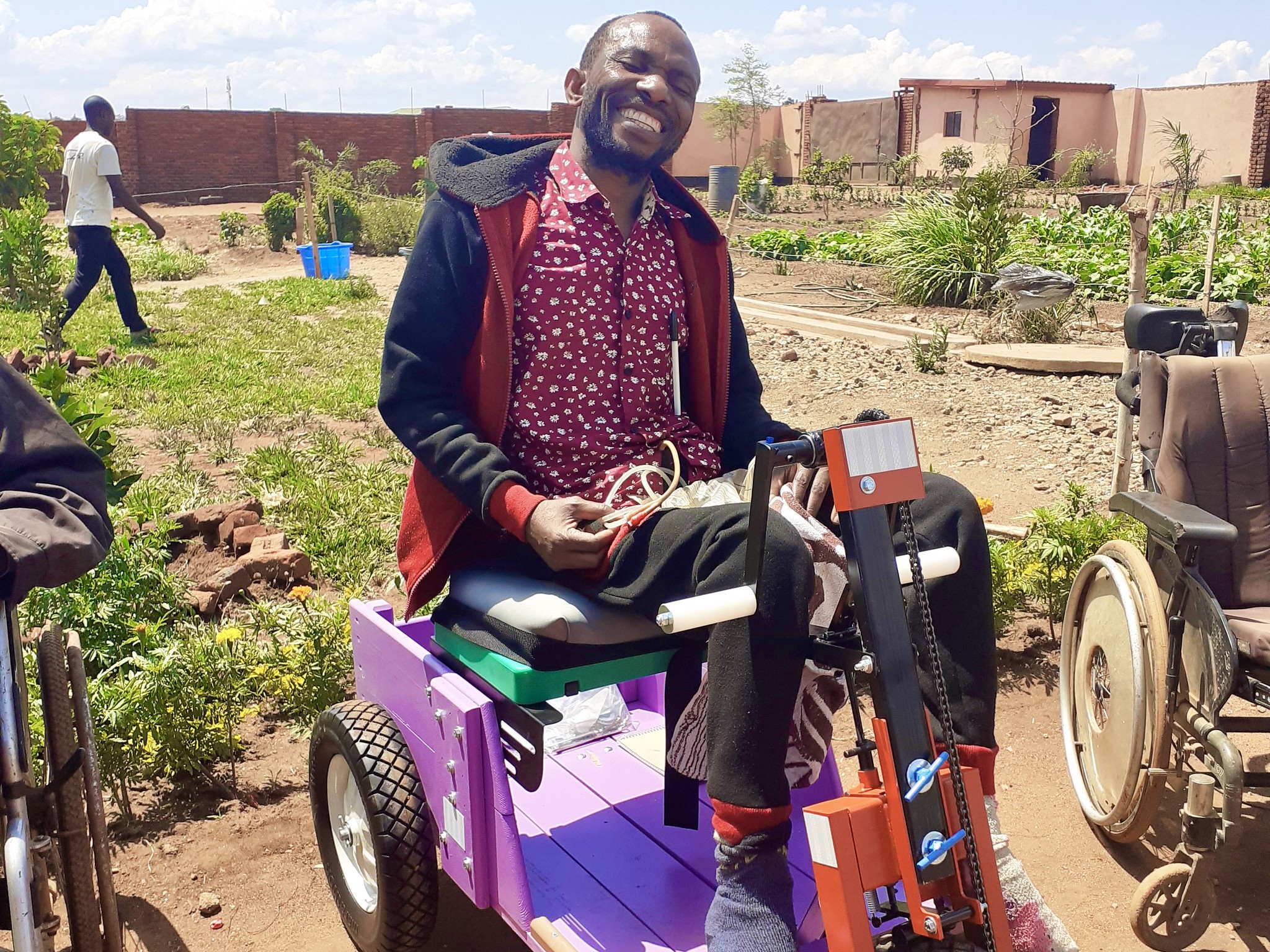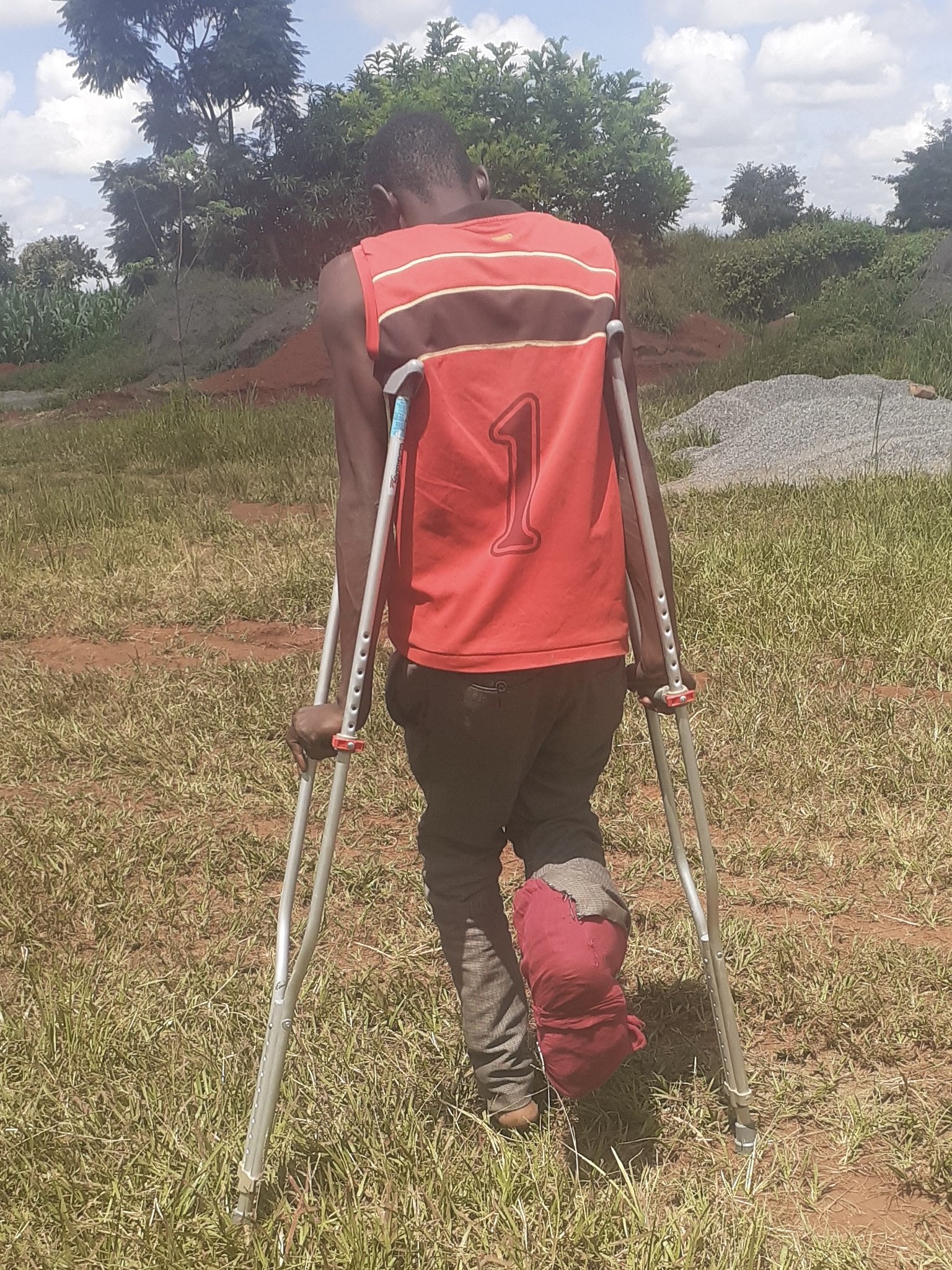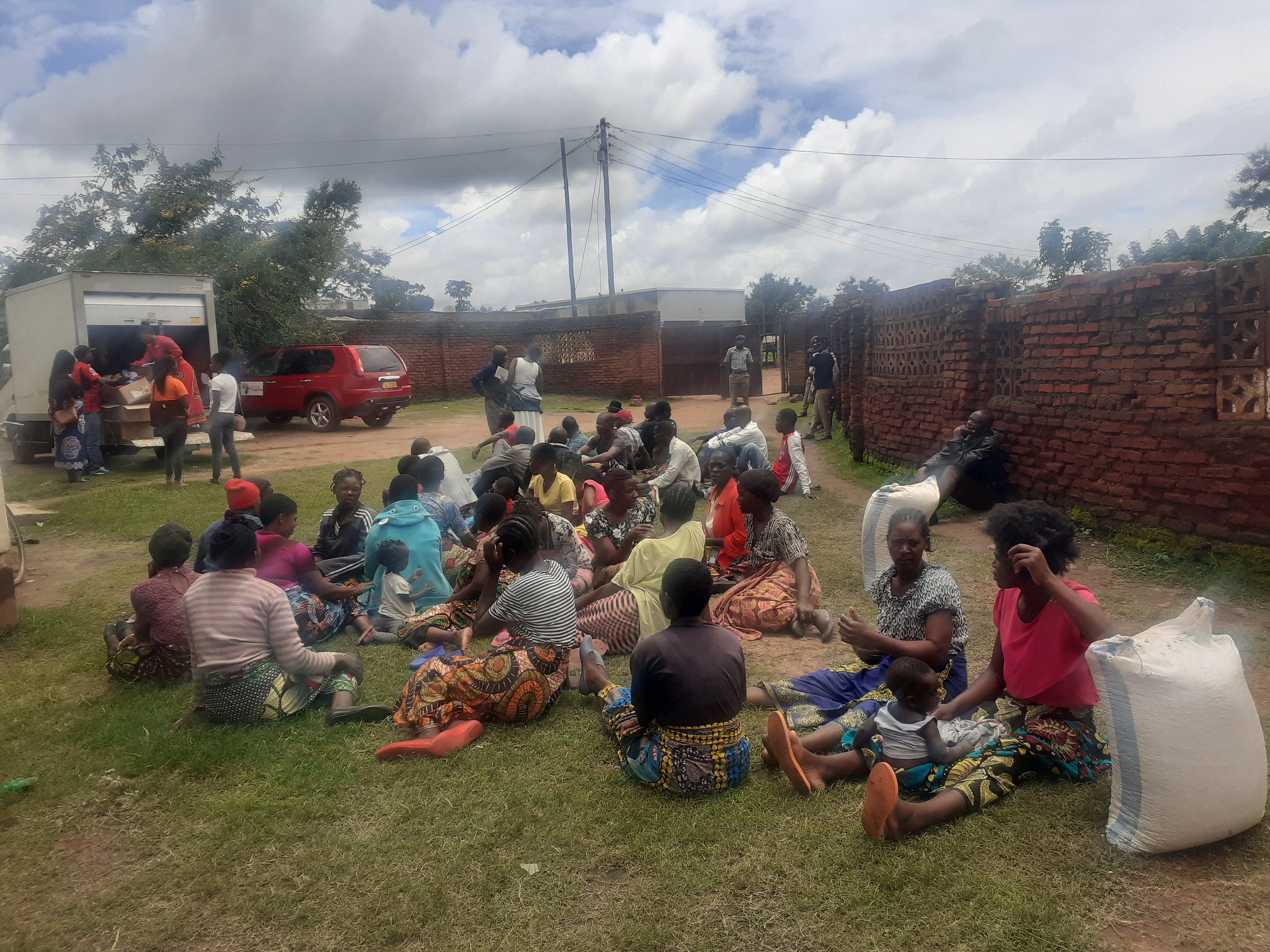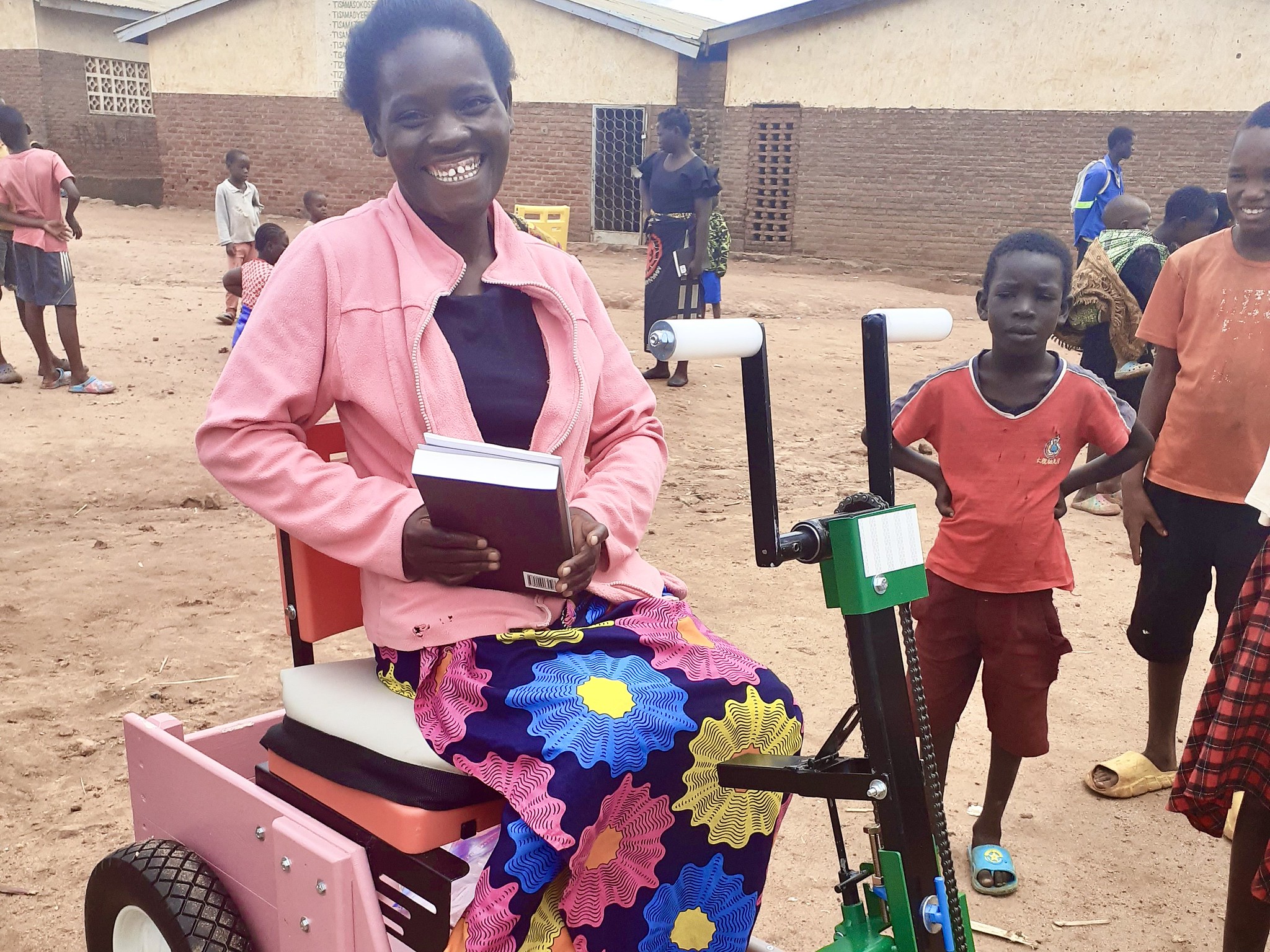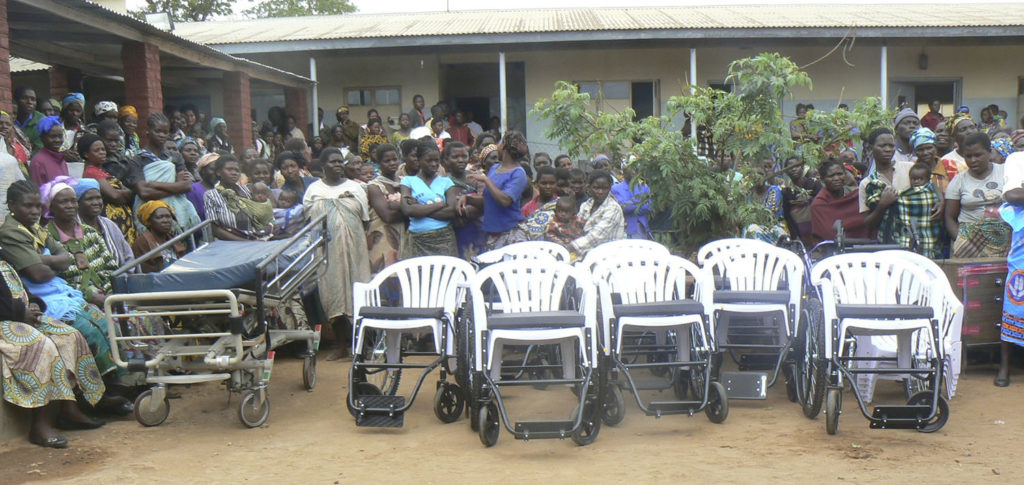
People with mobility issues are confined to distant village huts, hidden away back streets, and empty rooms in nondescript houses. They live invisible lives, alone and lonely, unable to contribute to society, their church, their school, or their community.
The Malawi Project has tackled the problem head-on and worked to alleviate the suffering. The loss to their communities, families and themselves cost everyone. The Project has tried, when possible, to focus mobility assistance in ways that will allow the recipient to live a more normal and productive life.
All-Terrain Wheelchairs

Malawi struggles with a critical need for mobility devices. Intense poverty, a cash-starved government, and an overwhelmed medical system highlight a system unable to supply the needs of more than a very, small percentage of its population. Malawi is primarily a rural society, where most of the population travels from place to place by walking along dirt paths. Few buildings are wheelchair accessible, and even fewer village huts have doors large enough for a wheelchair to enter.
As part of its medical outreach, members of the Malawi Project sent the first wheelchairs to the country in 1997. This marked the beginning of a program that would expand over the years, ultimately reaching people nationwide.
In 2001, a joint program was begun between the MalawiProject and Free Wheelchair Mission based in Irvine, California. Asa result, entire shipping containers of wheelchairs started flowing to Malawi,with distribution soon reaching all three regions of the country. Over the nextfifteen-years over 4,500 all-terrain wheelchairs were distributed. Thesewheelchairs were built with large bicycle tires for ease of movement and repair.This design allowed easier navigation over the rough terrain of rural,mountainous Malawi.
Hand-Propelled Mobility Units
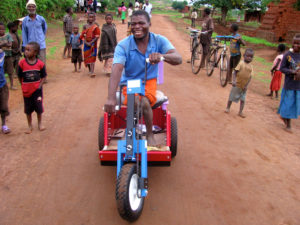
In the fall of 2015, members of the Malawi Project were introduced to Bob and Arla Gabrielse. They direct the efforts of one of 29 Mobility Worldwide production facilities focused on the construction and distribution of hand-peddled mobility units. Their plant in Demotte, Indiana is Mobility Ministries. In early 2016 the first 200 hand-propelled mobility units were on their way to Malawi. The need for mobility assistance is obvious as accidents, cerebral malaria, the lingering effects of generations of polio, as well as an inadequate medical system have left thousands with no hope of adequate movement. Combine the overwhelming need with a lack of funds to purchase mobility transportation, and the result is long term isolation and unproductive life. For a mobility-impaired population listed at 418,669 in 2018, these units offered hope for living a productive and independent life.
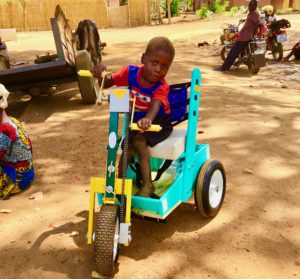
The program grew quickly as Mobility Ministries turned a major focus toward helping the people of Malawi. In late 2019 the Mobility Worldwide plant in Holland, Michigan joined the Demotte plant by supplying units specifically for children, and by early 2020 over 1,300 units had been shipped by the two plants. Along with a large number of canes and walkers, the effort to confront the mobility needs of Malawi is a major program for the U.S. based Malawi Project, and its Malawi sister organization, Action for Progress.
Mobility Stories
MOBILITY ISSUE DOES NOT MEAN DIMINISHED VALUE
Mzuzu, Malawi … Have you ever considered that an individual with a mobility impairment may possess greater qualifications for a position compared to an individual without such an impairment? It is frequently erroneously believed that individuals with mobility challenges are of diminished value or worth to themselves or their communities. Regrettably, we often marginalize them…
ISHMAEL REACHES FOR THE STARS
Salima, Malawi … Despite never having been able to walk independently throughout his life, Ishmael, a 27-year-old from a small village near Salima, has always aspired to achieve independence and lead a successful and productive life. His opportunity arose a year ago when he received a mobility device from Action for Progress (AfP). Recently the…
A VISUAL TRIP TO AFRICA
Thanks to Jim Langdon of Lafayette, Indiana, you can now take a visual trip to Malawi and see some of the programs being carried out by the Malawi Project and Action for Progress. So, prepare yourself a cup of tea, sit back and relax, click on the link below, and head out over the Atlantic…
MEMBER OF PARLIAMENT COMMENDS ACTION FOR PROGRESS
Lilongwe, Malawi … There is a sad saying that “promises are made to be broken.” All too often this is the case when people with good intentions make promises and are unable to keep them. Behind them lays a path of disappointment and pain. Action for Progress (AfP) stands out as an example of an…
MOBILITY OFFERS AID TO THE FAR REACHES OF THE NATION
Northern Malawi … Isaac Gondwe, at the age of 72, suffers from an extreme case of diabetes. He was born in 1952 and currently lives in Luangwa village in the district of Rumphi. While it is far away from the Action for Progress distribution center in Lilongwe, the long arm of mobility distribution reaches every…
KOLESI IS THANKFUL TO BE ALIVE
“The place where you lose the trail is not necessarily the place where it ends.” – Tom Brown Jr Lezina Dankein, reporting for Action for Progress observes that “Kolesi Phiri, a 50-year-old second-hand shoe salesman was able to make a good living until the accident that deprived him of his ability to get around.” Kolesi, the subject…
THE RESULT OF WAR, BUT NOT IN MALAWI
“When he was eight years old evil men came into his home village. They beat him badly and threw him down a septic system. When he was finally rescued, he was taken to the hospital for care. During the treatment it was discovered that he had suffered major injuries to his spine, and there was…
MAN WITH A SIMPLE WOUND
“I had a business buying goats and selling goat meat. It was very successful, and I was able to have a good profit every day. I lacked nothing. Then one day as I walked home from a friend’s house a piece of wood broke the skin in my left ankle. Little did I know at…
SEEING GOD’S HAND IN A CRISIS
Mponela, Malawi … Chikondi was selling vegetables in the local marketplace to provide for herself and her two children. This 31-year-old mother, and her family, lived in Malowa Village, just near the Mponela Trading Center, and even closer to the Kasangadzi River. As she visited friends and neighbors who passed by, she sold some of…
CEREBRAL MALARIA AND MOBILITY
Kachikho 2 Village, Lilongwe, Malawi … Malaria is serious in sub-Saharan Africa, but as serious as regular malaria is, cerebral malaria is even worse. The potential for death from this form of malaria is extremely high. Without treatment, cerebral malaria is nearly 100% fatal. With proper treatment of antimalarials the mortality rate decreases, yet even…

